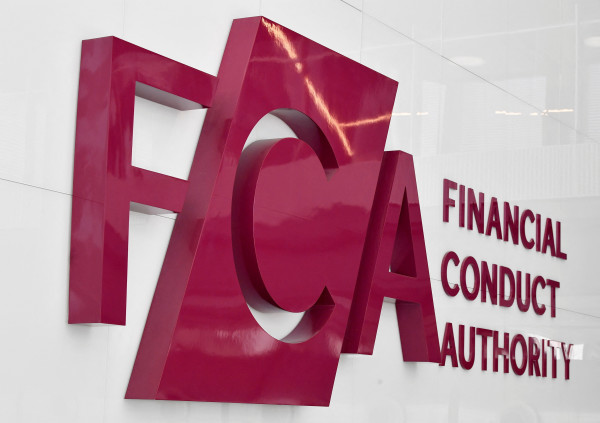

The Manchester-based mini-bond scheme collapsed in April 2020. It had promised investors interest payments of up to 10 per cent a year from a property portfolio it was supposed to build with the money.
Around 2,000 investors lost £46mn, despite being told their money was guaranteed up to £75,000 through an insurance scheme. One investor lost his entire military pension, while another family lost £40,000.
The company running the scheme was not, however, regulated by the FCA, and no individuals involved in the scandal were regulated by the City watchdog either.
The FCA was notified about Blackmore’s ‘boiler room tactics’ back in March 2017, according to the BBC. The regulator received 36 complaints about the firm through its complaints scheme after the firm collapsed.
FTAdviser understands The City of London Police was handed intelligence in relation to Blackmore by the FCA as early as 2017. The regulator also liaised with the Insolvency Service which initiated inquiries into the activities and operation of Blackmore, though no action was taken against the firm’s directors.
The FCA can only take action against firms or individuals which it regulates, and its powers are set by HM Treasury, rather than by itself.
What the FCA could do was take action against bogus mini-bond adverts. In March 2019, the regulator shut down the website of a firm which was promoting Blackmore products and withdrew its FCA approval.
Later that year, the regulator also used its product intervention powers to ban promotion of speculative mini-bonds to retail consumers from January 2020.
In the documentary, former Lloyds Banking Group forex trader and self-named 'whistleblower' Paul Carlier said the FCA “hung investors out to dry”, but the FCA and Pimfa have disputed accusations of inaction.
The FCA told FTAdviser: “We sympathise with investors who lost money through Blackmore. However, it is not true that we failed to act.
“Our powers were limited as Blackmore was not a regulated firm and the issuing and distribution of mini-bonds isn’t a regulated activity. But we did take action where we could, including sharing intelligence with other agencies as early as 2017.”
Pimfa’s public affairs head Simon Harrington said the documentary was “heartbreaking” and “incredibly hard to watch”.
But he added: “It’s easy to paint a picture of the FCA asleep at the wheel, but that’s not 100 per cent the case. The bonds sat out of the regulatory perimeter.
“If you were a regulator, are you going to step outside your powers to address it? The FCA regulates a large universe. It does make sense that it might not act in a way we would like it to because it has to be proportionate and has finite resources.
“It’s a really horrible story, but it’s not like they [Blackmore victims] were buying stocks and shares Isas. They were buying high-risk, unregulated investments.”
Harrington said regulation of financial promotions “has been massively beefed up” in recent years in reaction to scams such as Blackmore, as well as London Capital Finance.
“Without wanting to be callous, these are things which happened in the past. It’s horrible they happened. But it would be worse if the regulator hadn’t learnt from mistakes made,” he said.
“Of course, the extent to which it has learned will be if it happens again. And if it’s within its regulatory perimeter, it will be much more of a failure.”
‘Afraid’ for public’s view of FCA
Dan Brent, an adviser which moved to an advice-only model earlier this year, said it would be nice to see Panorama undertake a deep dive on the good work that advisers do within the community, rather than further fear-mongering within “an already untrusting public”.
After tweeting about the show, Brent said he received replies such as “bad news sells” and “why shouldn't the FCA be hung out to dry?”
“I'm afraid the public will view the FCA as unfit for purpose at best, and at worst corrupt, greedy and incompetent,” said Brent.
“Good thing I chose to be non-regulated in my new business, but it doesn't help us in our cause to professionalise financial advice.”
Brent’s business focused on financial planning advice, meaning he does not provide any regulated investment advice.
Some advisers, however, think the remits of the FCA need to be challenged. Richmond Wealth senior partner Chris Bryans said: “The FCA statement about this being an unregulated firm, selling to sophisticated investors speaks to the structural issues at the FCA - they expect firms to fail.
“This was a scandal happening in plain sight, like many before. The FCA has three aims, protecting consumers, market integrity and effective competition.
“How can these aims be met if an unregulated firm is running amok selling unregulated products to retail investors? They can't and we know the FCA was aware of what was going on.”
Bryans said after scandals such as London Capital & Finance and British Steel, the industry should be asking if it's time for a rethink of how it protects retail investors.
CIExpert founder Alan Lakey feels as though the reputational fallout from scandals such as these, as well as the Blackmore scam, impacts advisers adversely causing a loss of confidence all round.
“The overall theme is of a regulator that continually fails investors - a shutting the stable doors approach - that appears to be systemic,” he said.
Informed Choice managing director Shelley McCarthy said although Blackmore was not regulated by the FCA, she was disappointed the regulator did not take more action when certain actions were highlighted to them.
“I feel terribly disappointed for the people that lost their money. I think it highlights the need for taking proper independent financial advice and ensuring that you are investing in UK companies, authorised and regulated by the FCA,” said McCarthy
“In addition, the old adage ‘if it sounds too good to be true, it probably is too good to be true’ applies. A return of 10 per cent per annum, when compared to bank interest, is just not feasible.”
ruby.hinchliffe@ft.com




